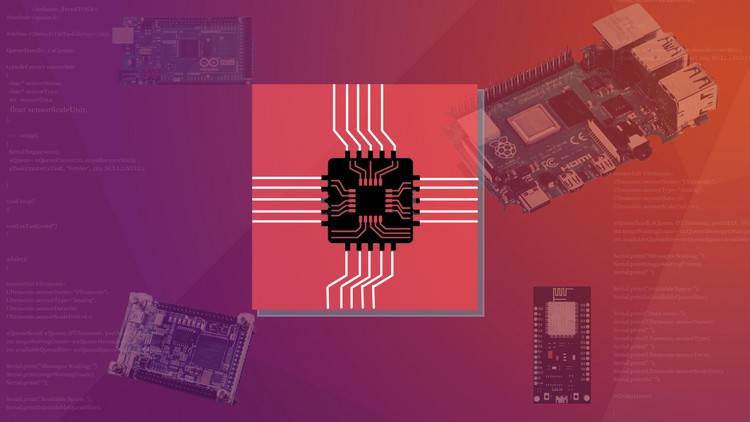
Embedded Electronics Bootcamp: From Bit to Deep Learning
Hardware Technologies Electronics Bootcamp to be taught:
- FPGA
- Raspberry PI
- Arduino
- ESP32 (Node MCU)
Programming Languages to be taught:
- C
- Python
- VHDL
Communication and Cloud Technologies to be taught:
- UART
- SPI
- MQTT
- Node-Red
- Hivemq
Techniques to be taught:
- Combinational Logic Design
- Sequential Logic Design
- FSM
- Control Units
- Tinker CAD
- Digital and Analog Signals
- Interrupts
- Android Control
- Remote Control
- RTOS
- Semaphores
- Mutexes
- Sharing Resources
- Queues
- Parametrized Tasks
- Structures
- Linux
- Basics of Artificial Intelligence
- Neural Networks
- Deep Neural Networks
- CNN
No other E-learning content tried linking all digital sciences with embedded systems as we did.
Starting with FPGA and the VHDL hardware design Electronics Bootcamp programming language. specifically from the smallest signal which we call the bit, to building simplified calculation and registration units used in microcontrollers from scratch! And what I mean by scratch is, building it out of basic Logic gates and registers.
Then Moving to AVR uC and the famous Arduino, and building it up to run The famous real-time operating system (RTOS) in order to run Multi-threading based application.
Learn VHDL and FPGA Development Udemy Free Download
Then dialing it up a notch and introducing ESP boards to run IoT applications, establishing communication to Node-red, android devices, and learning about remote access control.
Closing the whole thing by introducing raspberry pi and Linux. And building up with a basic Python introduction, Neural Networks, before building Embedded Deep learning image processing based models.
And all of that is hands-on! No plain theory, no philosophical block of texts explaining useless concepts. Getting your hands dirty, is my main drive here.